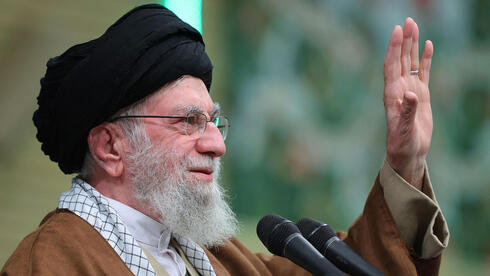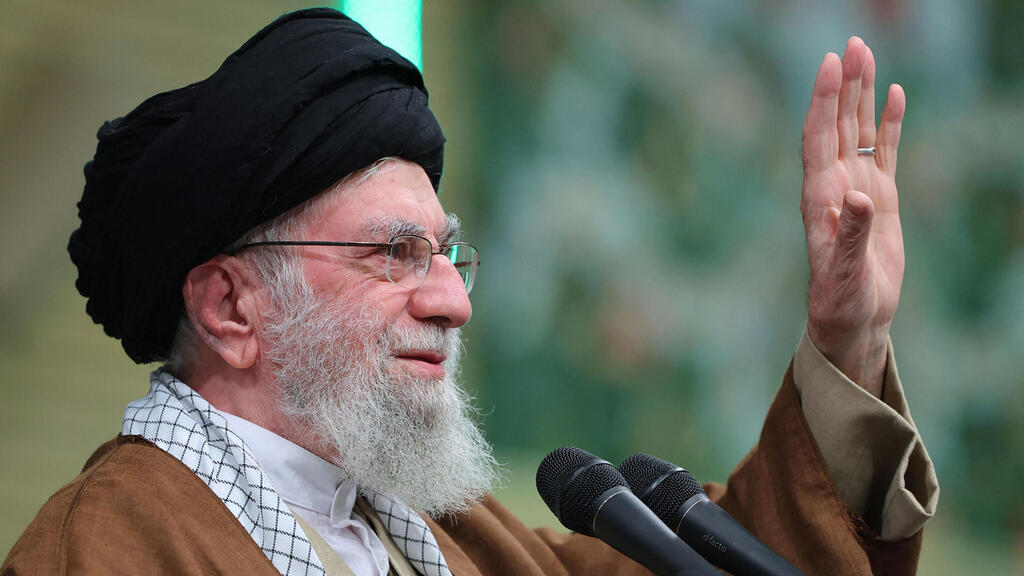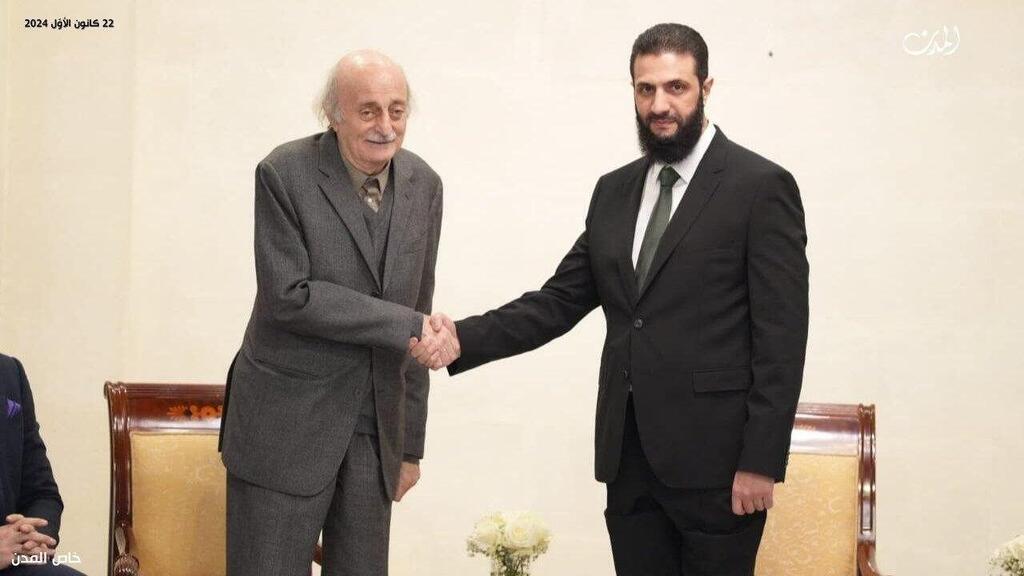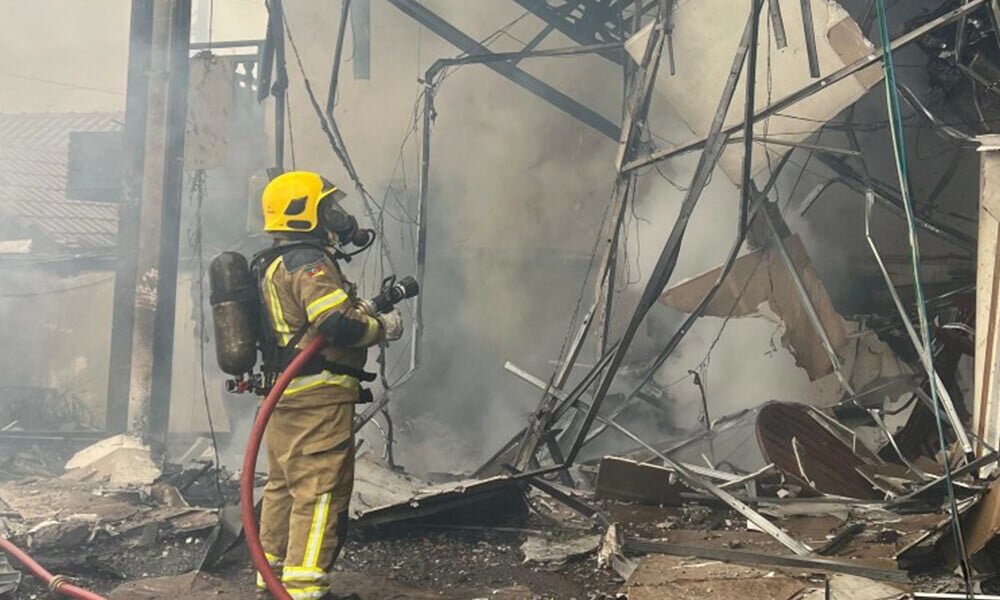Iran’s Supreme Leader Ayatollah Ali Khamenei on Sunday tried to downplay the impact of the Assad regime’s recent overthrow in Syria, alongside heavy losses suffered by Hezbollah and Hamas.
He dismissed claims that these groups operate as Iranian proxies but rather act on their own beliefs, not at Tehran’s direction.
“The Islamic Republic doesn’t have proxy forces. Yemen fights due to their faith. Hezbollah, Hamas and Islamic Jihad fight because their beliefs compel them to do so,” Khamenei said in a speech also attended by Muhammad Mahdi Nasrallah, the son of slain Hezbollah Secretary-General Hassan Nasrallah. He insisted Iran does not rely on such groups, adding, “If one day we plan to take action, we do not need proxy forces.”
Khamenei accused the U.S. and Israel of orchestrating the Syrian conflict to gain control of its resources. “Now they feel victory, the Americans, the Zionist regime and those who accompanied them,” he said, adding, “The Iranian people will trample anyone who accepts the role of a mercenary of America.”
Iran was the Assad regime’s main ally alongside Russia, and for years helped it suppress regime opponents with the help of pro-Iranian militias, partly in exchange for allowing it to flow weapons to Hezbollah in Lebanon through Syria and allowing Tehran’s militias to operate from its territory against Israel. The collapse of Assad’s regime earlier this month, which came after Hezbollah suffered a severe blow at the hands of Israel, was seen as a fatal blow to the Shiite “Axis of Resistance” that Iran had built in the region.
4 View gallery
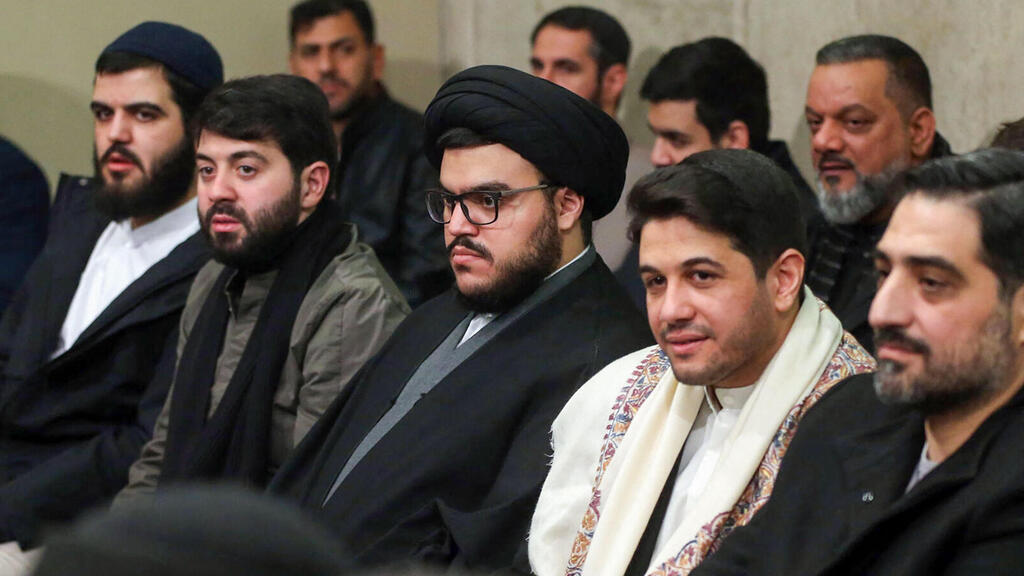

Muhammad Mahdi Nasrallah, the son of slain Hezbollah Secretary-General Hassan Nasrallah, was in the audience at Khamenei’s address
(Photo: AFP PHOTO / HO / KHAMENEI.IR)
After the toppling of Assad, rebel leader Ahmad al-Sharaa, formerly known as Abu Mohammed al-Golani, declared that the new Syria would not present a threat to any country in its vicinity and would no longer be subject to Iran’s whims.
Iranian officials have emphasized that communication channels have been established with Syria’s new leadership under al-Sharaa, though the details of these ties remain unclear. Tehran faces a challenging relationship with the new government, after years of backing Bashar Assad in a brutal crackdown on opposition forces.
In his speech Sunday, Khamenei appeared confrontational toward al-Sharaa’s administration, suggesting young Syrians, facing insecurity after Assad’s fall, could rise against the new leadership. “What can he do? He should stand with strong will against those who designed and those who implemented the insecurity,” Khamenei said. “God willing, he will overcome them.”
4 View gallery
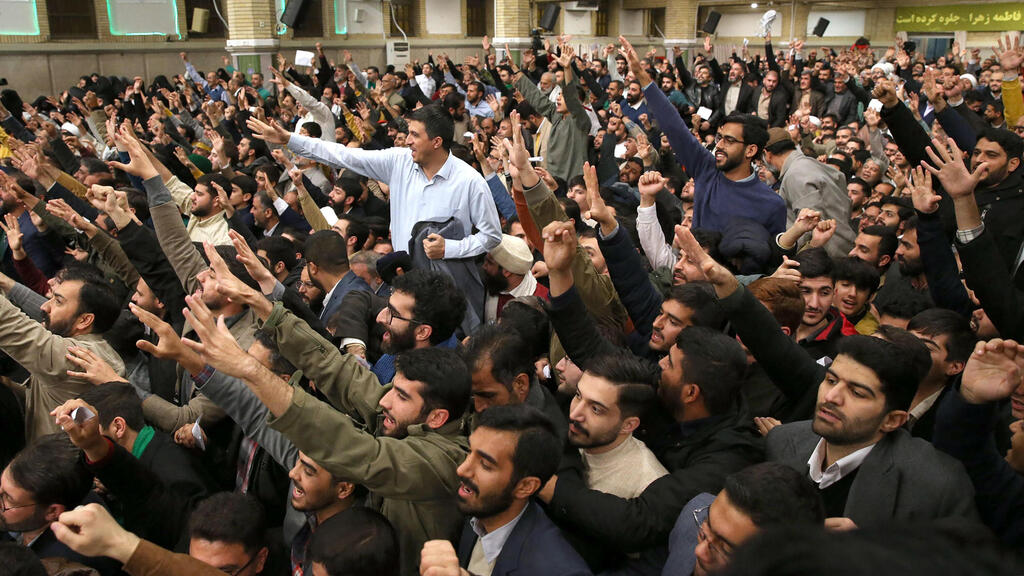

Iranian Leader Ali Khamenei gives his speech to supporters in Tehran
(Photo: AFP PHOTO / HO / KHAMENEI.IR)
Khamenei also accused Israel and the United States of fomenting chaos in Syria. “You Zionists haven’t won; you’ve been defeated. Yes, you were able to advance a few kilometers in Syria where there wasn’t even one soldier with a gun to stop you. That’s not victory,” he said, predicting Syrian resistance to foreign influence. “The courageous, devout, young people of Syria will definitely expel you from there,” he added.
Khamenei ridiculed Israel’s claims of victory in its war with Hamas, accusing the country of failing to achieve its goals despite extensive casualties. “The Zionists try to show they’re the victors. You wretched people! Where have you won? Have you won in Gaza? Have you destroyed Hamas? Have you freed your own prisoners? Is this victory to kill over 40,000 people without being able to achieve even one of your goals?” Khamenei said.
Meanwhile, diplomatic outreach to Syria’s new leadership continues to grow. Al-Sharaa met Sunday with prominent Lebanese Druze leader Walid Jumblatt in Damascus. Al-Sharaa criticized the Assad regime’s history of interference in Lebanon, often through Hezbollah, and pledged to chart a different course. “Syria will no longer be a case of negative interference in Lebanon,” he said, emphasizing respect for Lebanese sovereignty and a desire for stronger bilateral ties.
“We hope to have strategic relations with Lebanon and to start a new history with it,” al-Sharaa added. “Lebanon needs a strong economy and political stability, and Syria will support it.”
Turkey, a key player in Assad’s overthrow, is also strengthening ties with Syria’s new government. Turkish Foreign Minister Hakan Fidan met with al-Sharaa on Sunday, marking the highest-level contact between Turkey and the new Syrian leadership.
Turkey, seen as the driving force behind the opposition’s surprise offensive that toppled Assad, is poised to leverage its influence over al-Sharaa’s administration, particularly against Kurdish forces in northern Syria. This influence could also be directed toward advancing Turkey’s regional interests, including its stance against Israel.
